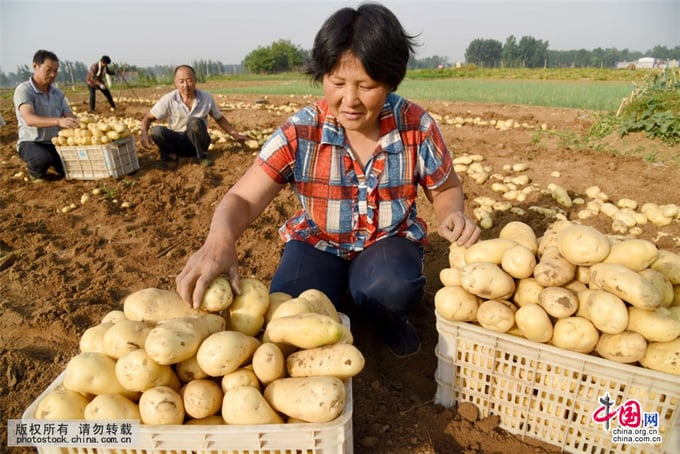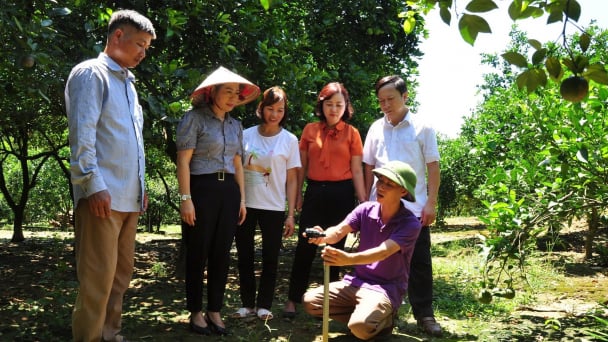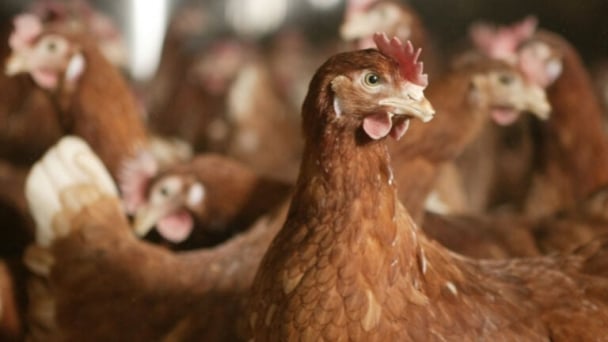June 28, 2025 | 18:54 GMT +7
June 28, 2025 | 18:54 GMT +7
Hotline: 0913.378.918
June 28, 2025 | 18:54 GMT +7
Hotline: 0913.378.918

China stands as the world's largest producer of potatoes, its annual production of nearly 100 million metric tons on some 5 million hectares of arable land.
As China stands as the world's largest producer of potatoes, its annual production of nearly 100 million metric tons on some 5 million hectares of arable land reflects the central role potatoes play in the country's food security and agricultural development.
Simon Heck, director-general of the International Potato Center (CIP), said China's geographic diversity allows for year-round potato production, a significant advantage, and its businesses on potato cultivation and production thrive through global cooperation and technological innovation.
In an exclusive interview with China Daily, Heck stressed that currently, there has been a new wave of investments in potato production in China from companies outside of agriculture, such as in the construction and real estate sectors, indicating the growing economic significance of this crop.
"Potatoes are one of the most important food crops in China, especially in northern and northwestern regions, where the harvest season is currently in full swing," he said, adding that the adaptability of potatoes to different growing conditions makes them vital for the country's food security.
Since 1978, the Peru-based CIP has been working in China to help improve potato and sweet potato production, collaborating closely with Chinese institutions such as the Ministry of Agriculture and Rural Affairs and the Chinese Academy of Agricultural Sciences.
"One of our key contributions has been the sharing of genetic resources," Heck said, adding that "China is the largest recipient of potato and sweet potato genetic materials from CIP's global gene bank."
Among CIP's most notable achievements in China is the development of potato varieties such as "Cooperation-88" and "Jizhangshu", which currently cover about 20 percent of all potato production in the country.
In addition to providing new varieties, CIP has been instrumental in training Chinese scientists and students, fostering advanced research on breeding, irrigation, and crop rotation technologies, he said.
"We have conducted numerous training programs, both in China and at our headquarters in Lima, Peru, helping to strengthen the scientific and technical capabilities of Chinese researchers," Heck added.
Meanwhile, as climate change is reshaping the global agricultural landscape, Heck emphasized that rising temperatures and changing rainfall patterns are affecting traditional potato-growing regions in China.
CIP's response to these challenges includes the development of new potato varieties specifically bred for future climate conditions, he said, noting these efforts involve collaboration with Chinese universities and research institutions, as well as private sector partners.
Furthermore, citing water scarcity as another major issue, Heck said, "China has an opportunity to lead in the region by developing and exporting potato varieties that are climate-resilient and water efficient."
In addition, as the potato industry faces new challenges and new opportunities, science and innovation have become crucial in driving productivity and sustainability, Heck said.
He stressed that science and innovation, rather than financial investment or land size, are now the key factors determining the success of potato production.
CIP is playing a pivotal role as a facilitator of innovation by connecting Chinese potato companies with international scientists and providing access to cutting-edge technologies, Heck said.
"Companies are beginning to apply artificial intelligence-driven models to predict water needs, optimize resource use, and ensure sustainable potato production in the future," he explained.
Moreover, CIP is encouraging Chinese companies to adopt innovations from other sectors, such as biotechnology startups that traditionally worked with strawberries but are now looking to apply their expertise to potato production.
"This cross-sector collaboration presents a significant opportunity for China to catch up with the advancements in other high-value crops," Heck said.
Heck added that China is also the world's largest producer of sweet potatoes.
(Chinadaily)
/2025/06/27/4654-2-213900_52.jpg)
(VAN) The Central Annamites Landscape Strategy for the 2025–2030 period sets a comprehensive direction for forest conservation, ecosystem restoration, and sustainable livelihood development.
![Lifting the IUU 'yellow card': [2] Thorough preparation for the EC inspection](https://t.ex-cdn.com/nongnghiepmoitruong.vn/608w/files/huytd/2025/06/27/3109-1-005033_548.jpg)
(VAN) Ahead of the fifth inspection by the EC, Khanh Hoa and Phu Yen have controlled fishing vessels, catch volumes at ports, and VMS equipment to meet the requirements for lifting the IUU 'yellow card.'

(VAN) Since the implementation of Resolution No. 03 by the People's Council of Tuyen Quang province, 282 organizations and individuals have been supported with advanced, water-saving irrigation systems, covering a total area of 765 hectares.
![Lifting the IUU 'yellow card': [1] Fisherpeople join forces](https://t.ex-cdn.com/nongnghiepmoitruong.vn/608w/files/huyenvt (e)/2025/06/26/0551-4-205700_585.jpg)
(VAN) To lift the EC's 'yellow card,' fisherpeople have significantly raised their awareness in complying with legal regulations in marine fishing activities.

(VAN) Research has shown that Hy-Line brown hens may be better suited for cage-free production based on overall greater egg production and other quality metrics.
![Turning wind and rain into action: [9] Digitizing hydrometeorological data in response to climate change](https://t.ex-cdn.com/nongnghiepmoitruong.vn/608w/files/news/2025/06/17/z6704423696987_15fd32ffc26d590d204d520c9dac6786-nongnghiep-165943.jpg)
(VAN) Farmers have begun accessing hydrometeorological applications to adjust their cropping schedules, aiming to ensure productivity and adapt to climate change.
![Turning wind and rain into action: [8] Real-time salinity detection and early warning technology](https://t.ex-cdn.com/nongnghiepmoitruong.vn/608w/files/news/2025/06/17/z6704423696987_15fd32ffc26d590d204d520c9dac6786-nongnghiep-151127.jpg)
(VAN) Thanks to the integration of modern hydrological-hydraulic models, remote sensing technologies, and artificial intelligence, the accuracy of hydrological forecasting has significantly improved.